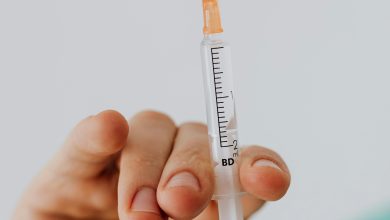Espiride: Uses, Dosage, Benefits, Side Effects, Interactions

Espiride is a South African medication containing the active ingredient Sulpiride which belongs to the class of drugs known as atypical antipsychotics. It is primarily used to treat various psychiatric and neurological conditions, including:
1. Schizophrenia: Espiride can be used to manage the symptoms of schizophrenia, a severe mental disorder characterized by disturbances in thinking, perception, and emotions.
2. Bipolar disorder: It may also be prescribed to individuals with bipolar disorder, particularly in the manic or mixed manic-depressive phases of the illness.
3. Anxiety disorders: Espiride can sometimes be used to alleviate symptoms of anxiety disorders, although it is not typically the first-line treatment for these conditions.
4. Gastroparesis: In some cases, Espiride is used to treat gastroparesis, a condition in which the stomach’s normal contractions are impaired, leading to delayed gastric emptying and various gastrointestinal symptoms.
Espiride works by affecting the levels of certain neurotransmitters in the brain, such as dopamine, which plays a significant role in regulating mood and behavior. By modifying the balance of neurotransmitters, it can help alleviate the symptoms associated with the conditions mentioned above.
How is Espiride taken?
The appropriate dosage of Espiride can vary depending on the specific medical condition being treated, the patient’s age, weight, and individual response to the medication. It’s crucial to follow your healthcare provider’s recommendations for dosing, as they will tailor the dosage to your specific needs. Generally, sulpiride is available in oral formulations like tablets or capsules. Common dosages may include:
1. Schizophrenia: For the treatment of schizophrenia, the initial recommended dose is usually around 100 to 200 mg per day, split into two or three doses. For some individuals with schizophrenia, the dosage may be determined as follows:
- Mainly Positive Symptoms: If a patient primarily experiences positive symptoms of schizophrenia (such as hallucinations or delusions), the initial dosage can start at 400 mg twice daily (bid). The dose can be increased as necessary, with a maximum daily dosage of up to 1,200 mg, administered in two divided doses.
- Mainly Negative Symptoms: In cases where negative symptoms (such as social withdrawal or emotional blunting) are predominant, the initial dosage may be lower, typically ranging from 200 to 400 mg bid, with a maximum daily dosage of 800 mg.
- Mixed Positive and Negative Symptoms: When a patient has a mix of both positive and negative symptoms with no clear predominance, an initial dosage of 400 to 600 mg bid may be considered.
2. Bipolar Disorder: In the case of bipolar disorder, dosages may vary depending on the phase of the illness. For manic or mixed manic-depressive episodes, dosages may start at 200 mg per day and may be increased if necessary. For maintenance therapy, lower doses may be used.
3. Anxiety Disorders: Espiride is not typically a first-line treatment for anxiety disorders, and the dosages may vary if it is prescribed for anxiety symptoms. Your doctor will determine the appropriate dose based on your condition.
4. Gastroparesis: If Espiride is used for gastroparesis, dosages can vary but often range from 50 mg to 400 mg per day. The specific dose will be determined by your healthcare provider.
It’s important to take Espiride exactly as prescribed by your healthcare provider. Do not adjust the dosage or stop taking the medication without consulting your doctor.
Espiride offers benefits in the treatment of psychiatric conditions, such as schizophrenia and bipolar disorder, by helping to alleviate both positive and negative symptoms associated with these disorders. Sulpiride, as an atypical antipsychotic, acts on neurotransmitters in the brain, helping to restore a more balanced chemical environment. It can reduce hallucinations, delusions, and mood disturbances in schizophrenia patients, as well as stabilize mood swings in individuals with bipolar disorder, ultimately improving their overall quality of life and functional capacity. When used as prescribed by a healthcare professional, Espiride can be an effective medication in managing these conditions.

Espiride Side Effects
Espiride may cause a range of side effects. It’s important to note that not everyone will experience these side effects, and their severity can vary from person to person. Common side effects of Espiride may include:
1. Extrapyramidal Symptoms: These can include involuntary muscle movements, restlessness, tremors, and stiffness. This is more common with higher doses.
2. Sedation: Some people may experience drowsiness or sedation when taking Espiride, particularly when starting the medication.
3. Gastrointestinal Disturbances: This can include nausea, vomiting, and constipation.
4. Weight Gain: Like many antipsychotic medications, weight gain may occur with long-term use of Espiride.
5. Increased Prolactin Levels: Espiride can lead to increased levels of the hormone prolactin, potentially causing breast enlargement (gynecomastia) or irregular menstrual periods.
6. Cardiovascular Effects: In some cases, it may lead to changes in blood pressure and heart rate.
7. Neuroleptic Malignant Syndrome (NMS): Although rare, NMS is a potentially life-threatening condition associated with antipsychotic medications, characterized by high fever, muscle rigidity, and altered mental status. Seek immediate medical attention if you experience any of these symptoms.
8. Allergic Reactions: Allergic reactions, while rare, may occur and can include skin rash, itching, and swelling of the face, lips, or tongue.
9. Mental/Mood Changes: Some individuals may experience changes in mood, including depression or anxiety.
It’s essential to consult with a healthcare professional before starting Espiride, and to report any side effects or adverse reactions promptly. Also, be aware that the benefits of the medication are typically weighed against the potential side effects, and your healthcare provider will work with you to manage these effects and determine the most appropriate treatment plan. Adjusting the dosage or considering alternative medications may be options if side effects become problematic. Patients should not discontinue the medication without medical supervision, as abrupt discontinuation can lead to withdrawal symptoms or worsening of the underlying condition.
Interactions
Espiride can interact with various drugs and substances. It’s crucial to inform your healthcare provider about all the medications, supplements, and substances you are using to avoid potentially harmful interactions. Some significant drug interactions with Espiride include:
1. Antipsychotic Medications: Combining Espiride with other antipsychotic drugs, such as haloperidol or risperidone, can increase the risk of extrapyramidal symptoms (movement disorders) and other side effects. These interactions should be carefully managed by a healthcare professional.
2. Dopamine Agonists: Drugs like pramipexole and ropinirole, which are used to treat Parkinson’s disease and restless leg syndrome, may have reduced effectiveness when used alongside Espiride. The two medications can compete for dopamine receptor sites, potentially leading to therapeutic conflicts.
3. Alcohol: Alcohol can potentiate the sedative effects of Espiride, causing increased drowsiness, dizziness, and impaired cognitive function. Combining alcohol with Espiride is generally discouraged.
4. Benzodiazepines and Opioids: Combining Espiride with central nervous system depressants, such as diazepam (Valium) or opioids like oxycodone, can lead to enhanced sedation and a higher risk of respiratory depression. This combination should be avoided or carefully monitored.
5. Antihypertensive Medications: Espiride can have blood pressure-altering effects. When used alongside antihypertensive medications like beta-blockers or ACE inhibitors, the dose of these drugs may need adjustment to maintain blood pressure within a safe range.
6. Antidepressants: Some antidepressants, like selective serotonin reuptake inhibitors (SSRIs) and tricyclic antidepressants, can impact prolactin levels. Combining these with Espiride may increase the risk of hyperprolactinemia, which can lead to side effects like gynecomastia and menstrual irregularities.
7. Caffeine: The stimulant effects of caffeine can be amplified when combined with Espiride, potentially leading to increased anxiety, restlessness, and insomnia. It’s a good idea to moderate caffeine intake while taking Espiride.
8. Drugs Metabolized by Cytochrome P450 Enzymes: Sulpiride can affect the activity of certain cytochrome P450 enzymes in the liver, potentially altering the metabolism of other drugs. For example, it may impact the metabolism of warfarin (a blood thinner) or certain antifungal medications. Your healthcare provider can guide you on specific interactions based on your medication regimen.
9. Proton Pump Inhibitors and Antacids: Some antacids and proton pump inhibitors may reduce the absorption of Espiride. To minimize this interaction, Espiride should be taken at least two hours before or after these medications.
It’s essential to consult with your healthcare provider and pharmacist about potential drug interactions. They can provide guidance on how to manage these interactions, including adjusting dosages or considering alternative medications when necessary. Additionally, your healthcare provider should be informed of any changes in your medication regimen to monitor for possible interactions.





